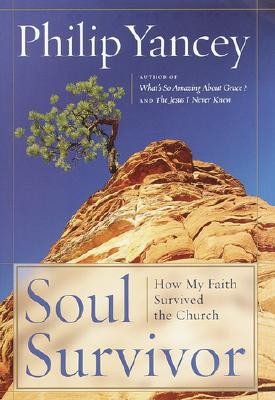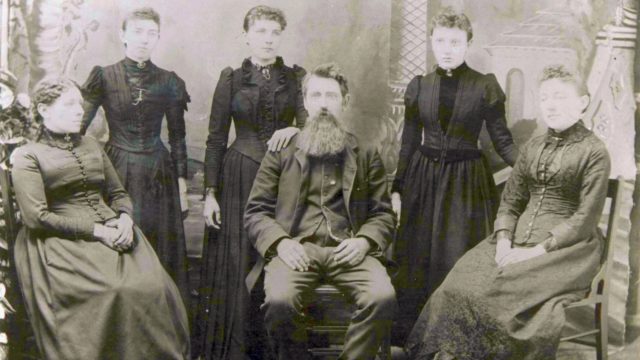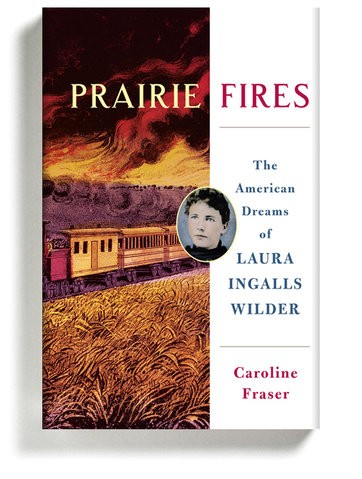Washington: The Indispensable Man
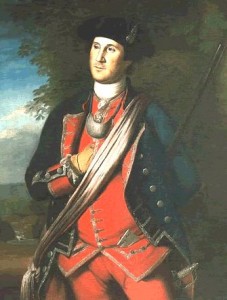 This isn’t how I’m accustomed to visualizing George Washington. Charles Willson Peale’s 1772 painting captures him young and gallant, with a twinkle in his eye, in his French and Indian War uniform. But thanks to Washington: The Indispensable Man, I got to know him a little bit, and follow him through his long and influential life to his deathbed. By then I was ready to mourn with those in attendance, and affirm his indispensability in the early American landscape.
This isn’t how I’m accustomed to visualizing George Washington. Charles Willson Peale’s 1772 painting captures him young and gallant, with a twinkle in his eye, in his French and Indian War uniform. But thanks to Washington: The Indispensable Man, I got to know him a little bit, and follow him through his long and influential life to his deathbed. By then I was ready to mourn with those in attendance, and affirm his indispensability in the early American landscape.
James Thomas Flexner originally wrote this biography in four volumes. This book is a distillation of that original effort, written in response to the pressure to create a work more accessible to “a broader public.” Organized chronologically, it proceeds from Washington’s birth in 1732 to his death in 1799. It’s an excellent book, winner of a Pulitzer prize citation and described by various reviewers as “the most convincing,” “most readable,” “best single-volume biography available” that “deserves a place on every American bookshelf.”
Thus I’m ashamed to admit that I didn’t find it as enjoyable to read as I was expecting. It read (to me) more like a textbook than the story which perhaps I was wrong to expect. However it was enriching, and it raised my interest in developing a more sophisticated political understanding (rather than a purely literary one) of early American history.
Above all I valued this book for its humanization of a legend. Far from being the irritable denture-clacking character of stereotype, the Washington that emerges from these pages is a man of:
- Dazzling personal qualities –”The most significant aspect of Washington’s early career was that it took place at all. Every responsibility he assumed required public selection and support. When he was hardly beyond his teens, many of his associates were already convinced that his destiny was importantly linked to the destiny of America.”
- Many failures — “Writers have contended that he was so incompetent that he would have been defeated by any other human beings except the dullards the British sent against him… The debate has overlooked the fact that Washington was never really a soldier. He was a civilian in arms.”
- Passion — In Manhattan in 1776, Washington rides toward the musket fire to find his men in full retreat. “Washington galloped after them, shouted, struck at them with his riding whip, but to no avail. He threw his hat on the ground, crying out, ‘Are these the men with whom I am to defend America?’ And again, ‘Good God! Have I got such troops as these?’ Unwilling to follow the retreat, Washington soon loomed on horseback, alone. Some fifty of the enemy dashed towards him. He watched them without moving. Had not aides galloped up and pulled him away, he would have been killed or captured.”
- Strong affections and loyalties — Often betrayed by those close to him, envied, plotted against, and lied about, he’s never defeated in his essential optimism and liking for people.
- Tremendous character — He does the difficult but right thing without fail. One example: he was the only Virginia founding father to free all of his slaves.
- Indestructibility — An Indian guide missed when shooting at him at close range; he survived untouched a battle in which every other mounted officer was struck; he rode between two firing columns, striking at them with his sword, without being shot himself; and “during the Revolution, Washington was again and again to take the most foolhardy risks, but the bullets, although they tore his clothes and killed his horses, never touched his body.”
- A self-educator — This is evident throughout Washington’s long career as a precedent-setting political figure, but to me the most striking examples are his remaking of his Virginia farm as an entity independent of England, and his ability to learn the value of the ragtag Continental army and develop an ability to use it strategically.
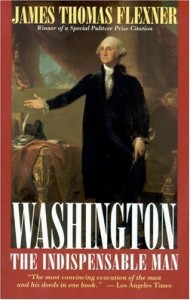 Disillusioning is good. It gets us behind the myths not in order to tear them down, but — as in the case of learning about Washington — to more fully appreciate the impact of the very human figures made remarkable by history. At every turn America as a young country was in peril; every decision was layered with implications, competing passions, political pettiness, danger. This country was established by flawed men (though I know I haven’t mentioned any of Washington’s flaws in this review), yet it has not only survived, but risen to meet its ideals. It’s been good to be reminded of that this week, after an inauguration that depresses me to my very bones.
Disillusioning is good. It gets us behind the myths not in order to tear them down, but — as in the case of learning about Washington — to more fully appreciate the impact of the very human figures made remarkable by history. At every turn America as a young country was in peril; every decision was layered with implications, competing passions, political pettiness, danger. This country was established by flawed men (though I know I haven’t mentioned any of Washington’s flaws in this review), yet it has not only survived, but risen to meet its ideals. It’s been good to be reminded of that this week, after an inauguration that depresses me to my very bones.
